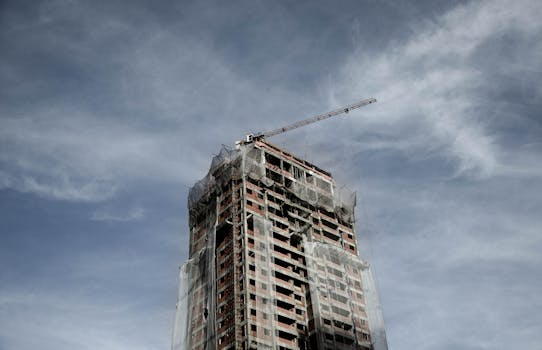The Financial Benefits of Sustainable Real Estate
Sustainable real estate is a growing trend in the housing and commercial property markets, driven by an increased awareness and demand for environmentally responsible and energy-efficient buildings. The United Nations projects that by 2050, two-thirds of the global population will live in urban areas, making sustainable real estate a critical consideration for the future. However, aside from its environmental impact, there are also significant financial benefits to investing in sustainable real estate. In this article, we will explore how sustainable real estate can provide long-term financial gains for property owners and investors. 
The Rise of Sustainable Real Estate
The concept of sustainable or green building has been gaining popularity in recent years, with an increasing number of property developers and investors recognizing its value. Sustainable real estate refers to properties that are designed, constructed, and operated in an environmentally friendly and resource-efficient manner. This includes the use of renewable energy sources, energy-efficient materials, and water conservation techniques. The goal is to reduce the carbon footprint of buildings while also providing a healthier and more comfortable living or working environment for occupants.
Lower Operating Costs
One of the most significant financial benefits of sustainable real estate is lower operating costs. Energy-efficient buildings are designed to use less energy, resulting in lower utility bills for tenants and lower maintenance costs for property owners. For example, installing solar panels can significantly reduce a building’s electricity costs, and switching to LED lighting can reduce lighting expenses by up to 75%. These savings add up over time, resulting in increased profitability for property owners and investors.
Increase in Property Value
Sustainable buildings are also more attractive to potential tenants and buyers, resulting in an increase in property value. A study by the National Association of Home Builders found that home buyers are willing to pay an average of 4% more for a green-certified home. Similarly, commercial properties with green building certifications have shown to have higher occupancy rates and rental premiums. Additionally, as governments continue to implement stricter building codes and regulations for energy efficiency, sustainable buildings may become even more valuable in the future.
Tax Incentives and Rebates
Investing in sustainable real estate can also result in tax incentives and rebates. In the United States, properties that achieve certain green building certifications, such as LEED or Energy Star, may be eligible for tax credits, deductions, or lower property tax rates. Some states and local governments also provide financial incentives for implementing energy-efficient upgrades or renewable energy systems. These tax benefits and rebates not only reduce the cost of owning a sustainable property but also provide additional financial savings.
Future-Proofing Investments
As the world continues to face the effects of climate change, there is a growing demand for sustainable buildings. This means that investing in sustainable real estate now can future-proof your investments. Green buildings are less susceptible to rising energy costs, tenants and buyers are willing to pay a premium for them, and they may become mandatory in the future. This makes sustainable real estate a smart long-term investment and a safeguard against potential market fluctuations.
Conclusion
The financial benefits of sustainable real estate are clear. Energy efficiency and responsible use of resources not only benefit the environment but also result in lower operating costs, increased property value, tax savings, and future-proofing investments. As a content writer professional in Google SEO, I highly recommend considering sustainable real estate as a lucrative investment opportunity that not only provides financial gains but also promotes a greener and more sustainable future.










